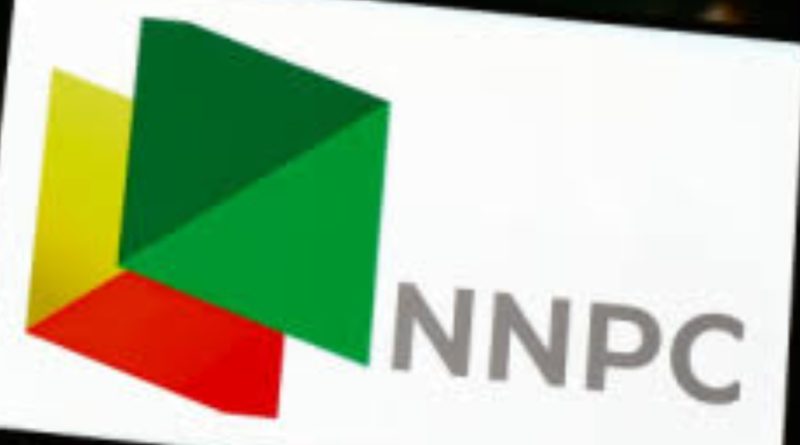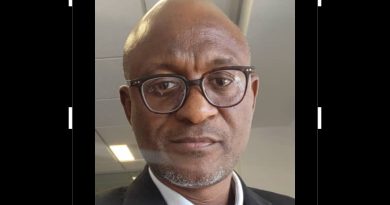From frying pan to the fire NNPCL
By Nick Dazang
NIGERIANS were rudely awakened on Wednesday, October 9, 2024, to bad tidings. On the said day, the Nigerian National Petroleum Company Limited, NNPC Ltd, announced that it would no longer be the sole buyer/off-taker of petrol from Dangote Refinery. It had earlier claimed that it was purchasing petrol from Dangote Refinery at N898.8 per litre and selling it at N765.99, thereby subsidising the petrol to the tune of N133 per litre.
This announcement followed termination of the NNPC Ltd’s exclusive purchase agreement with Messrs Dangote Refinery. Pronto, the NNPC Ltd’s retail outlets in Abuja increased their per litre sale of petrol to N1,030. Even though members of the Independent Petroleum Marketers Association, IPMAN, were, as at the said Wednesday, yet to start buying petrol directly from the Dangote Refinery, it is being speculated that by the time they do and they add their margins, petrol will be sold at other retail outlets, other than the NNPC Ltd’s, from N1,200-N1,500 across the country, depending on location.
‘My songs will make you buy bedsheets’- Ironha, who took hawking when fire razed his Yaba shop0:00 / 0:00
This recent increase in the price of petrol is the third in two months. Each was effected without prior notice or regard for customers. The last increase is said to represent the full and unfettered deregulation of the downstream sector. Translation: From now henceforth, the price of petrol in Nigeria will be determined by the vagaries of the market only. These market forces will operate in tandem with the price of crude oil in the international market. Thus, if the price of crude goes up in the international market, its local price will reflect such an increase. If, mercifully, the price of crude oil goes down in the international market, the price of local petrol, being vended, will go down as well.
It should be noted that this increase, for the umpteenth time, represents the upward trajectory of the price of petrol from N198 to N1,030 per litre since Bola Ahmed Tinubu assumed the presidency on May 29, 2023. On that fateful day, he announced, with fanfare, that “subsidy is gone”.
Beyond this upward and irritating trajectory, the increase speaks to Nigeria’s storied economy, which is dependent on oil and a dysfunctional NNPC Ltd which has had to govern this product. Rather than being a blessing, oil has been a curse. Its discovery, exploitation and the cheap funds it has spawned have all led to indolence and neglect of pivotal sectors such as agriculture and manufacturing. Worse, its proceeds were seldom invested in other areas that would have diversified the economy and created sundry streams of income for the country.
These serious failings were not helped by the NNPC Ltd. In its previous and present reincarnations, the NNPC has come across as a cesspool of corruption. For decades, and in spite of huge sums expended on Turn Around Maintenances, TAM, none of its refineries is working. In the period that it marked time carrying out these unending and sham TAMs, Aliko Dangote, Africa’s richest man, built one of the biggest refineries in the world. With an inordinate and bewildering lack of shame, the NNPC Ltd, until last Wednesday, had positioned itself as the sole distributor of Dangote’s petrol.
If the NNPC Ltd represents a blight and an incubus on the economy, the recent increase in the price of petrol(which marks the removal of the final tranche of fuel subsidy) is certain to unleash consequences and to further fray the nerves of Nigerians. As some of us have often argued, all costs associated with living are tied to transportation. From the foodstuffs being produced in our farms to materials procured for building, transportation is a crucially important facilitator. The implication is that additional costs borne by actors in the economy will be passed off to the helpless consumer. Meanwhile, even before the advent of the Tinubu presidency, not less than 133 million Nigerians were multi-dimensionally poor. With his assumption of office and the serial removal of subsidies in petrol and electricity and the free fall of the Naira, the number of Nigerians now living in poverty is better left to the imagination.
The token approval of a minimum wage of N70,000 has since been rubbished by inflation, especially food inflation, all thanks to the subscription, lock, stock and barrel, of market forces and IMF/World Bank policies.
In other climes, citizens endure and forbear austerity measures. This is because their leaderships exude empathy and live the exemplary lifestyles of integrity and self-denial. In our case, it is the exact opposite: Leaders live in wanton opulence while the follower-ship wallows in want and misery. Rank corruption and opaqueness define governance. The leaders carry on haughtily and with scant regard for the well-being of the people.
Compounding the aforementioned, this government has failed, resoundingly, to put in place concrete and practical measures to reduce the suffering of the people. Where attempts are made at all, they are, at best, feeble or cynical. Sometimes they are mere conduits which some crooked officials of government exploit to salt away public funds. Whereas the way to go, in view of the high price of crude oil and our dire straits, is to immediately find recourse in cheaper alternatives such as Compressed Natural Gas, CNG, Electric and Solar Vehicles, there is either no coherent infrastructure in place to support them or they are being implemented in the breach.
Related News
Price of bread rises faster than inflation
Rising energy costs push manufacturers to brink of collapse
Rising energy costs push manufacturers to brink of collapse
For instance, the few CNG-fired vehicles being procured have no gas stations to re-fill or replenish them. Conversion points for petrol-driven cars are few. Even then such conversions, given the experiences of other countries, are fraught with danger. Customised CNG vehicles are to be preferred for safety.
Worst, the government is yet to come out with a rig-proof, digital template with which to succour the dirt poor as recently done in India using the AADHAAR identity number scheme.
It is crystal clear from the foregoing, and in the absence of well-articulated plans to reduce suffering, made worse by the recent increase in petrol prices, that we are destined for a hellish place. From the frying pan, we seem, inexorably, to be heading to the fire.
Dazang, a public affairs commentator/analyst, wrote from Abuja
Source: Vanguard Newspapers




